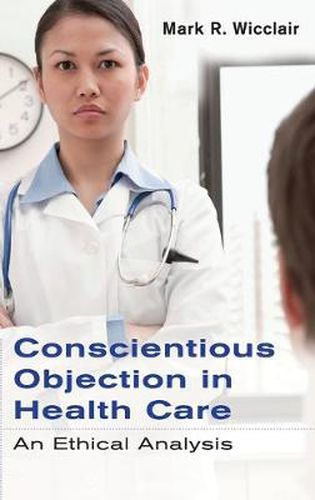Readings Newsletter
Become a Readings Member to make your shopping experience even easier.
Sign in or sign up for free!
You’re not far away from qualifying for FREE standard shipping within Australia
You’ve qualified for FREE standard shipping within Australia
The cart is loading…






Historically associated with military service, conscientious objection has become a significant phenomenon in health care. Mark Wicclair offers a comprehensive ethical analysis of conscientious objection in three representative health care professions: medicine, nursing and pharmacy. He critically examines two extreme positions: the ‘incompatibility thesis’, that it is contrary to the professional obligations of practitioners to refuse provision of any service within the scope of their professional competence; and ‘conscience absolutism’, that they should be exempted from performing any action contrary to their conscience. He argues for a compromise approach that accommodates conscience-based refusals within the limits of specified ethical constraints. He also explores conscientious objection by students in each of the three professions, discusses conscience protection legislation and conscience-based refusals by pharmacies and hospitals, and analyzes several cases. His book is a valuable resource for scholars, professionals, trainees, students, and anyone interested in this increasingly important aspect of health care.
$9.00 standard shipping within Australia
FREE standard shipping within Australia for orders over $100.00
Express & International shipping calculated at checkout
Historically associated with military service, conscientious objection has become a significant phenomenon in health care. Mark Wicclair offers a comprehensive ethical analysis of conscientious objection in three representative health care professions: medicine, nursing and pharmacy. He critically examines two extreme positions: the ‘incompatibility thesis’, that it is contrary to the professional obligations of practitioners to refuse provision of any service within the scope of their professional competence; and ‘conscience absolutism’, that they should be exempted from performing any action contrary to their conscience. He argues for a compromise approach that accommodates conscience-based refusals within the limits of specified ethical constraints. He also explores conscientious objection by students in each of the three professions, discusses conscience protection legislation and conscience-based refusals by pharmacies and hospitals, and analyzes several cases. His book is a valuable resource for scholars, professionals, trainees, students, and anyone interested in this increasingly important aspect of health care.